I’m not saying you’ll write THESE books.
Hey, I’ve got this idea for a book. If you’ll write it and take care of all the publishing stuff, I’ll split the profits with you fifty-fifty.
Wow. What a deal that is. Like you carrying a full-time job, cooking, cleaning, caring for the kids… and I’ll nip over in the afternoons to bang the spouse. Even-steven!
Obviously, this is not a square deal, but let’s be honest, most folks don’t really grok the difference. So what if you really do want to write and publish that book? What’s actually involved?
I am here to help.
After working in printing for a dozen years or so, I made a welcome jump to kids’ book illustration, and now I write grown-up-ish novels of my own. Lena, my wife of twenty-seven years, designs, programs, and hosts websites, a job she created for herself out of working first at print shops, then corporate marketing departments. We’ve both dipped in and out of printing and publishing for decades.
Five or six times a year individuals will approach one or both of us for assistance in their dream of publication. Most of them leave dejected and/or angry when we give them honest answers, and we always feel bad. They want to pay us five bucks and then sit back and watch the cash roll in. We never take the fiver.
Crushing dreams is free.
The Idea for the Book
Lots of folks believe that, like admitting you have a problem is half the battle, coming up with an idea for a book is halfway to a movie deal. It’s an understandable position if you’re not a writer. The truth is in a single day of writing in which I might produce one-sixtieth of a novel, I will have created two dozen book-worthy ideas that I zip right past and never think about again. (Or I do think about them and cry because I’ll be long dead before I write everything I want to in the first place, and now what am I going to do with this?)
Fantastic ideas are cheap and are the easiest part of the process. And I mean really good ideas. So why do movies like Indiana Jones and the Crystal Skull get made, so full of terrible, terrible ideas?
I actually thought I’d have an answer to that by the time I finished typing the question. Live and learn.
Writing the Book
This is where the genuine work begins. Writing a book is hard. Not because sitting down at a computer and making words on the glow-box is tough, but because our monkey-brains are engineered to find the next banana right now. Working for one paycheck every two weeks is actually kind of a bummer that is off-putting to many, but working for up to a year for a payday that will only arrive more years down the line—odds being that it will never show up at all—is a crazy-difficult thing to make yourself do.
This is why (by far) most people who come to us are holding hand-written pages of their new children’s book in their meaty little fists. They can write it in an afternoon and then zoom, off to the races.
Or poetry. Dear-Sweet-Baby-Jesus the poetry.
Just remember that as there are tens of thousands of broke, unpublished writers out there, there are exponentially more who had the same idea to shortcut the process and do the afternoon version. But even with this, there are guidelines and education and all kinds of rules to follow in children’s literature that the great majority of would-be authors have never even heard of, and without which you will not even be looked at, much less published. This stuff requires hard-core research.
If you have sat your ass down and legit written a whole book, please indulge my applause. It is not easy, and you have done something that most folks think they either can or will, but can’t and won’t. You have easily accomplished half of the writing part of your book. (The hardest part comes later.)
Next comes beta-readers and polishing, which involves trying to find a bunch of people willing to read what at this point is the (no judgment) hammered turd of your manuscript and tell you why you were stupid to write it. It’s tough to take, and tougher still when they are inevitably right. BUT… this makes your book better and turns you into a better writer.
So you sift through the advice and figure out what you can use, reread your manuscript three or four times making changes, slashing useless chapters and creating new ones, as well as rewrites all the way, until you are ready to…
Well, this next step sort of depends.
The Next Step
Not too long ago self-published writers were looked down on. Today there are some very handsomely paid self-pubs who are laughing all the way to the bank, and quite a few have found themselves poached by the big publishing houses.
At the same time, conventional publishers continue to make themselves less and less attractive to new authors, with lower pay and increasingly onerous contracts. The decision between self and traditional publication is not as cut and dried as it once was.
If you want to seek traditional publishing with a big firm, now is either the time to find a publisher (wicked hard), or an agent to help you find a publisher. (Just as hard, but if you’re any good, makes a lot of things after this step a lot easier, as your agent will help you with contract negotiations and stuff like that.)
By the way, a real publisher will find you an illustrator for your children’s book. If you find someone willing to do it on your nickel and you plan to find a traditional publisher later, you are throwing that money away—and custom illustrations are not cheap if they are any good at all. That publisher will not look at those illustrations you paid for unless it’s just to humor you. They are privy to all sorts of in-house marketing information that dictates the direction of the art that you will have no hope of knowing.
Self-publishing, on the other hand, requires finding a professional editor, a layout (prepress) person, a cover artist, and a marketing plan. No one is exempt from these steps.
No one.
Then you toss your book into the abyss of Amazon and hope someone notices… which brings you back around to your marketing plan again. All of this is more expensive upfront with self-publishing, but you keep more money on the back end. Not all of it though, because Amazon still gets their dick wet in your—I’m going to say bathtub. They have pricing structures that determine how much of your money they keep, which you will really want to research too.
There is an in-between stage here, and that is the hybrid publisher. They are a mad grab-bag of different services and interests, and rare are the two who operate the same way. My publisher, Cursed Dragon Ship Publishing, is pretty fantastic. Although their pockets are not yet deep, they offer the same services to a new author as one of the big firms, and many that those bigger firms don’t bother with anymore. Like, help with your marketing plan.
And that leads us to…
Your Marketing Plan
Everything so far is easy compared to getting people to even know you’re out there, much less to take a chance and spend their hard-earned cash on an author they’ve never heard of before that Facebook ad you paid for. It takes money and know-how, research, and experimentation. And in the end, it might all be a waste, which makes everything you’ve done up until this point a waste, too. A publisher might help with marketing (mine does), but the absolute least you will be responsible for will be creating and finding an audience for your newsletter, which is the most valuable marketing tool you have, and that ain’t nuthin’.
This is a slog, and it’s a murky one. I don’t understand a tenth of what I ought to, although I do have some pretty great resources. Out of all of it, it’s the biggest part and the least fun.
The Take-Away
If you’ve ever approached me with a book idea and a profit-sharing plan, take heart in either getting ignored or not punched in the face. It means I like you.
Writing a book, just the writing part, is hard work, but it is at most twenty-five percent of the total effort required to make the whole thing succeed. It is possible to do it all yourself… or at least pay for people to help you do it yourself… and many do with spectacular results. But that does make it harder. Those folks are working.
In short, writing is not a thing you do if you are looking for either big or easy money. It’s neither. The one thing it does have going for it is satisfaction. Nothing feels better than seeing your work on someone else’s shelf.
And you won’t get that from having someone else write your idea.

Sign up for the Orven Newsletter
Get your monthly dose of humor and book updates in your inbox.
Unsubscribe any time. We will never share or sell your email. Because, that's just rude.